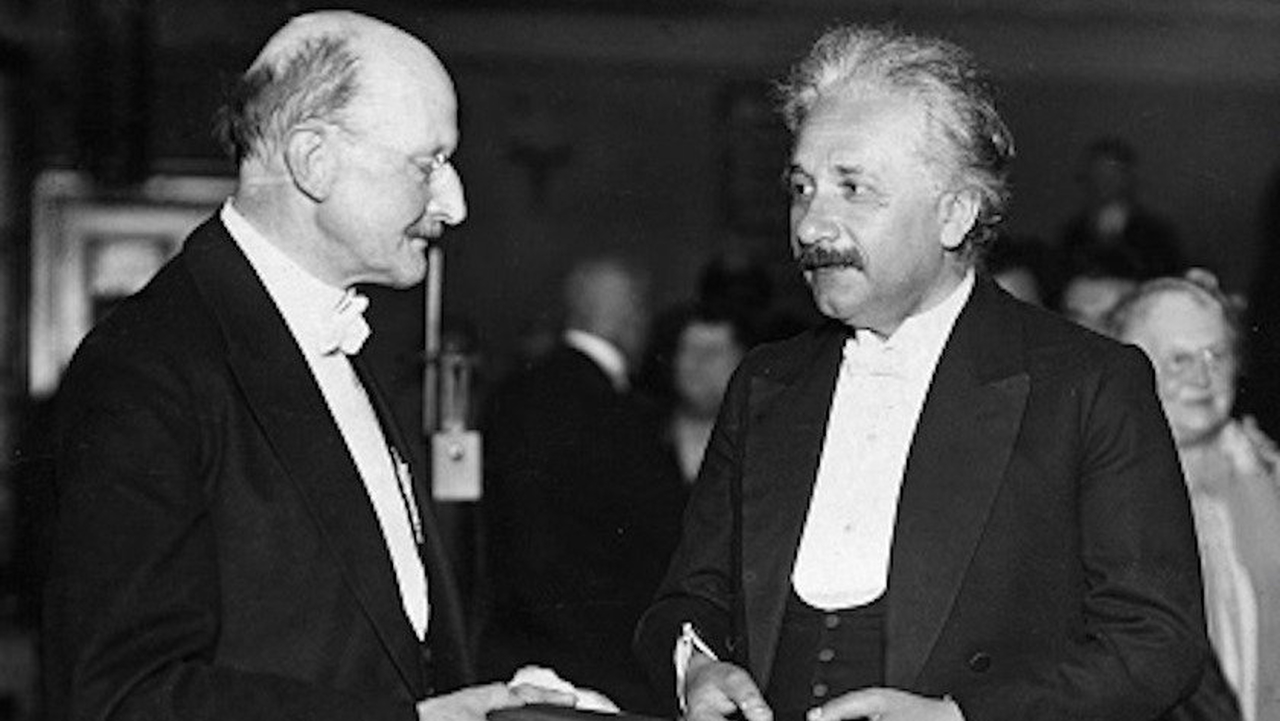Some of the remarkable discoveries from quantum physics can be adapted to help us break free from the groove of our past and unleash real change in our lives. The quantum world reveals that light has a somewhat schizophrenic nature. It has the dual capacity to exist either as a wave or a particle. This tendency is referred to as the wave/particle duality. This seemingly illogical notion is naturally counterintuitive and rubs against our common sense of logic. Ordinarily, we believe that things either are or are not. This is not the case here, however.
It appears that when the light photon is not being observed it exists in waveform, but at the moment of observation, the wave collapses and becomes a particle. The act of observing actually collapses the wave. Prior to making the observation the wave represents a state of pure potentiality. That potential only becomes manifest into a fixed state when we look at it. I have come to see that a very similar phenomenon occurs in our lives.
The imprints of certain childhood events, which impact us so significantly, are in fact wave collapses of our identity. As newborns or infants, if not at conception itself, we resemble the potentiality of the wave, waiting for our identities to take shape. Notwithstanding matters of genetics, archetypal and astrological influences, our lives are not yet determined and our personalities not yet molded. Ordinarily, even a single experience is sufficient to collapse the wave and become embedded in our psychic structure. The hurtful word or an embarrassing experience of childhood collapses our potential. At times, it need not be that traumatic and may in fact be quite subtle. Yet, in those moments our potential becomes narrowed and our identity begins to take shape. It’s as if we took a snapshot of ourselves that became frozen in time. We are no longer the wave but the particle. And we carry this picture with us through our lives, burdening and limiting our emergence. The themes of such collapses may vary, but they are typically self-denigrating: “I’m not good enough or smart enough” or more simply, “I’m not loveable.”
Often, people cling to habituated beliefs about themselves in accordance with their primary wave collapses. In spite of new events, which might cause us to reconsider or re-evaluate our beliefs, we remain rooted in the way we see ourselves and block the opportunity for change. We tend to remain embedded in the groove of our self-referencing thoughts. These beliefs and images typically are borne out of early wave collapses.
How stupid can I be?
Recently, a client shared a telling story with me. Her first day of kindergarten, her mother sent her off to school on her own. She lived only one block from school and her mother incredibly thought she could handle the walk by herself. Upon arriving at the school, she was told that she had arrived too late and would have to miss the entire day. She sheepishly walked home and rang the doorbell. Her mother opened the door and looked at her indignantly. “Why are you here?” she impatiently asked. My client told her mother about the time mistake, and her mother bellowed, “How stupid can you be?” Forty-five years later, this woman still carried a core belief that she was, indeed, stupid. That interaction collapsed a very significant wave and shaped her intellectual image. The wave collapsed and she froze this snapshot. It became a core feature of her personality. Given that our beliefs tend to become self-fulfilling prophecies, it wouldn’t be surprising if her performances, both in life and academically, were affected by her belief.
I shared the theory behind wave collapse and she quickly apprehended the notion. I asked her to consider whether it was possible that for her entire life she had believed an untruth about herself. Fortunately, she permitted herself to allow an alternative point of view with all of its accompanying dissonance and considered that perhaps she wasn’t intellectually inferior. We visualized a new wave collapse in which she was told that she was indeed smart. Of course, this necessitated her embracing her discomfort as she moved beyond the limits of her familiar zone. Our work then focused on helping her break free from the addictive tendency of her thoughts to malign herself. Her progress from that point was most impressive.
I’m not lovable
I have been working with a middle-aged man who, because of childhood interactions with his parents, collapsed impressions of himself that instructed him that he wasn’t lovable. His life, until recently, created experiences that bore out this belief. However, very recently a woman with whom he has fallen in love has, in fact, decided that she, too, loved him. As he was inclined to remain in his primary collapse experience, he resisted this new information. I attempted to heighten his opportunity for change by highlighting the dissonance around this contradictory information. If, in fact, his lover found him lovable, might he indeed be lovable? I encouraged him to collapse a new perception of himself. By making this choice, he permitted himself the opportunity to select a new observation and collapse a new wave of experience.
Breaking free from the predictability of the wave collapse requires uprooting the repetitive thoughts that platform the continued belief. Noticing the repetition of these old thoughts, in lock step with the wave collapse, enables the shift. I must note that wave collapses need not be negative or emotionally injurious. They may just as well be positive and bolster our self-esteem.
The wave collapse can also be illustrated by our thought selection. Prior to the instant in which we select and attach to a thought, we are like the wave, in a state of potential. In the nanosecond between thoughts, our next state of reality is suspended in a pure state of potential. Once we select the thought, the wave collapses and a reality is summoned.
At times, in therapy a client often comes to a long awaited breakthrough. It is a significant moment in which there is long awaited insight and what has always been obscured becomes illuminated. In the following moments, there ensues a state of potential. Whether the individual attaches to the thought that instructs, “What a relief; I’ve broken through” or “What’s wrong with me; why has this taken so long?” will select which reality they choose. They can obviously choose vastly differing experiences. The potential is all that exists prior to the next thought.
Superposition
It appears that the universe perpetually unfolds from this state of potential – known in quantum physics as superposition. When we speak of the universe we tend to refer to it as out there, leaving ourselves separate. This is a cardinal error. We fully participate in the crafting of that universe as much as the universe informs who we are. In order to access universal potential, we must devote ourselves to apprehending that possibility. It lies in the instant prior to collapsing the wave with our next thought/emotion.
The thought becomes our reality. Having thoughts from the habitual groove of our experience will likely replicate more of the same feelings and experiences. Remember that thought re-presents our past experience. This is why we struggle with change. Taking a new snapshot and actualizing new thinking, however, will script a new experience. The pathway to change doesn’t require a gradual overcoming of our obstacles, but can be easily accessed through a quantum re-envisioning of our wave collapse. Our emergence is linked to seeing differently, and a new way of seeing is the most powerful thing in the universe. Indeed, it fully participates in that evolving reality. Reaching beyond the familiar and breaking the bondage of the familiar is essential.





[…] beliefs deeply in our psyche. The beliefs become self-fulfilling. Our potential as human beings collapses and narrows as our limiting beliefs of self become our truth. And we act out our lives […]